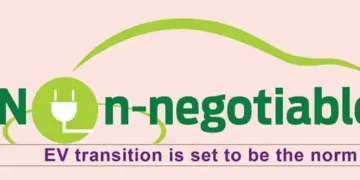Shalini S Sharma
THE recent debate over hybrids versus electric vehicles (EVs) notwithstanding, there is no denying the fact that EVs are here to stay.
Monthly and quarterly sales figures may zigzag but the overall transition from a fossil fuel-driven mobility to the one which is clean, green and is run by electricity is accepted by all as non-negotiable today.
While China is leading the global race in EVs, there are more than 10 companies in India which are making all varieties of EVs. Among the prominent in the passenger car segment are Tata Motors with its Nexon and Tigor models; Mahindra Electric’s eVerito; MG Motor India’s ZS SUVs and Hyundai with Kona Electric. Mahindra is also making Treo three-wheelers which run on battery.
Among electric two-wheelers, Ola is a leading player. Besides, there is TVS Motor Company with its iQube model of scooties; Hero Electric with Optima and Photon scooters; Ather Energy’s 450X and 450 Plus scooters and RV400 and RV300 motorcycles from Revolt Motors. There are also electric buses which are being made by Ashok Leyland and Chinese subsidiary of BYD.
Govt as the catalyst
India’s commitment to achieving net-zero emissions by 2070, in line with the Global Sustainable Development Goals (SDGs), is propelling a shift from fossil fuel-driven vehicles to EVs. The trend is in line with global efforts to keep the environment clean and make it more sustainable for future generations.
There are several policies of the Government which are helping the industry make the transition. The Faster Adoption and Manufacturing of Hybrid and Electric Vehicles (FAME) scheme is a significant Government initiative aimed at promoting the adoption of EVs.
FAME II, launched in 2019, focuses on expanding the charging infrastructure, reducing the cost of EVs through subsidies, and incentivising manufacturers. There is also Production-Linked Incentive (PLI) Scheme with a focus on EVs, encouraging domestic production of EV components and vehicles. Several states, including Delhi, Maharashtra, and Tamil Nadu, have introduced their own EV policies, offering additional incentives such as tax rebates, registration fee waivers, and subsidies for setting up charging stations.
Sparse charging infra
One of the biggest barriers to EV adoption in India has been the limited charging infrastructure. The Government and private players are working to address this, but expansion is still needed to support widespread EV use. High upfront cost of EVs is another factor which is limiting their growth. Traditional internal combustion engine (ICE) vehicles cost less than EVs. There is also the issue of supply chain and battery technology.
At present, India relies heavily on imports for lithium-ion batteries, which are crucial for EVs. There is an increasing focus on developing domestic battery manufacturing capabilities and exploring alternative technologies like solid-state batteries. The industry is expected to tide over all hurdles gradually, with the support of the Government and the EV market is expected to grow significantly in the coming decade.
















